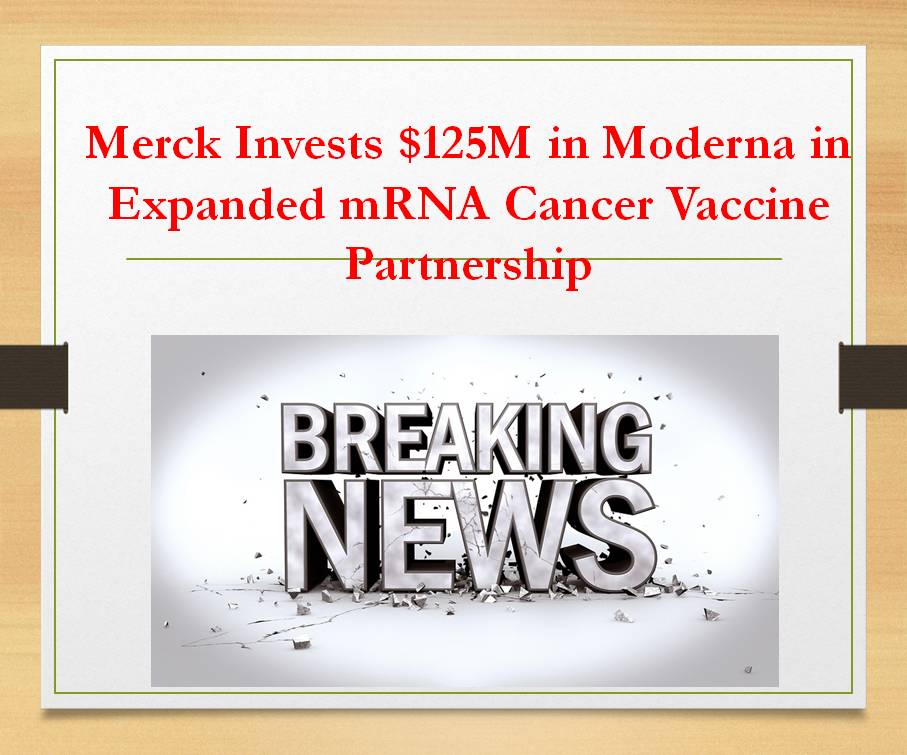
Fourth Collaboration
The expanded oncology partnership marks the fourth collaboration by Moderna and Merck in the past three years.
The companies launched their cancer mRNA collaboration in 2016 by agreeing to combine Merck’s immuno-oncology expertise with Moderna’s mRNA vaccine platform and GMP manufacturing capabilities. Merck paid Moderna $200 million cash upfront as the companies agreed to develop individually tailored cancer vaccines that encode a patient’s specific neoantigens, eliciting an immune response intended to recognize and destroy cancer cells. Moderna agreed to lead all R&D efforts through human proof-of-concept studies.
In November 2017, Moderna launched the Phase I KEYNOTE-603 study of mRNA-4157, an mRNA-based personalized cancer vaccine being developed with Merck & Co. through a $100-million-plus mRNA partnership launched in January 2015. KEYNOTE-603 (NCT03313778) is expected to enroll up to 90 patients, and assess the safety, tolerability, and immunogenicity of mRNA-4157 alone in subjects with resected solid tumors and in combination with Keytruda in patients with unresectable solid tumors.
mRNA-4157 is designed to encode for peptides containing neoantigens and other unique mutations present in each patient’s specific tumor. When injected into the body, the mRNA will direct cells to produce and express these neoantigens, according to Moderna.
Merck and Moderna are also partners on two mRNA prophylactic vaccines indicated for undisclosed targets in infectious diseases, mRNA MRK-V213 and mRNA MRK 1777. For mRNA MRK-1777, Moderna is conducting a randomized, placebo-controlled, dose-ranging Phase I study of the vaccine, indicated for an undisclosed target. The study was launched in November 2016 and enrolling healthy volunteers as of September 2017.
“We are excited to build upon our productive relationship with Merck and to rapidly advance our novel mRNA-based KRAS cancer vaccine into the clinic,” added Moderna CEO Stéphane Bancel.
In addition, Merck and Moderna said, they may launch and collaborate on other shared antigen mRNA cancer vaccine development programs. Moderna’s KRAS mRNA program applies tumor sequencing to identify suitable patients with specific mutations in KRAS in order to personalize their therapy.
Merck also agreed to invest $125 million toward Moderna’s upcoming Series H equity round, whose value was not disclosed in the companies’ announcement. In February, Moderna said it raised an additional $500 million in Series G financing to fund further R&D into its mRNA pipeline. The company has raised more than $1.6 billion in equity and $1 billion through partnership payments, Bancel told CNBC yesterday.
He also said Moderna was not planning to list an IPO in Hong Kong as well as the U.S., as The Wall Street Journal reported in March, citing an unnamed “person familiar with the company’s plans.” However, Bancel would not comment further on his company’s IPO plans.